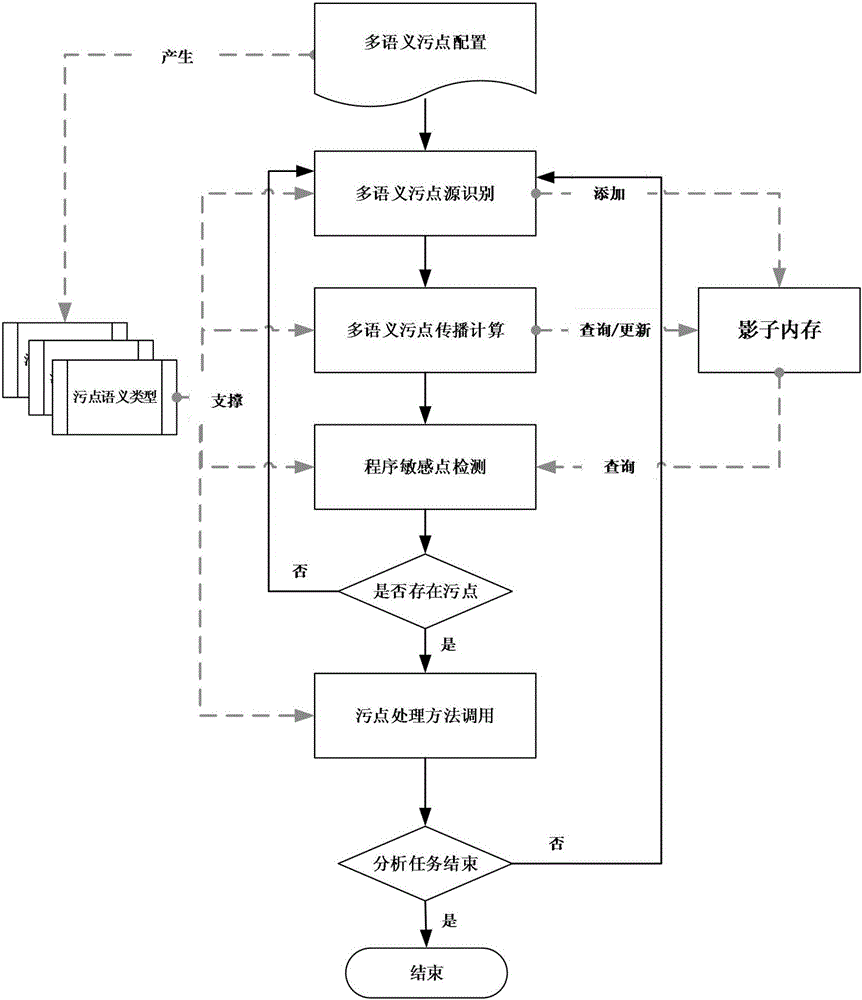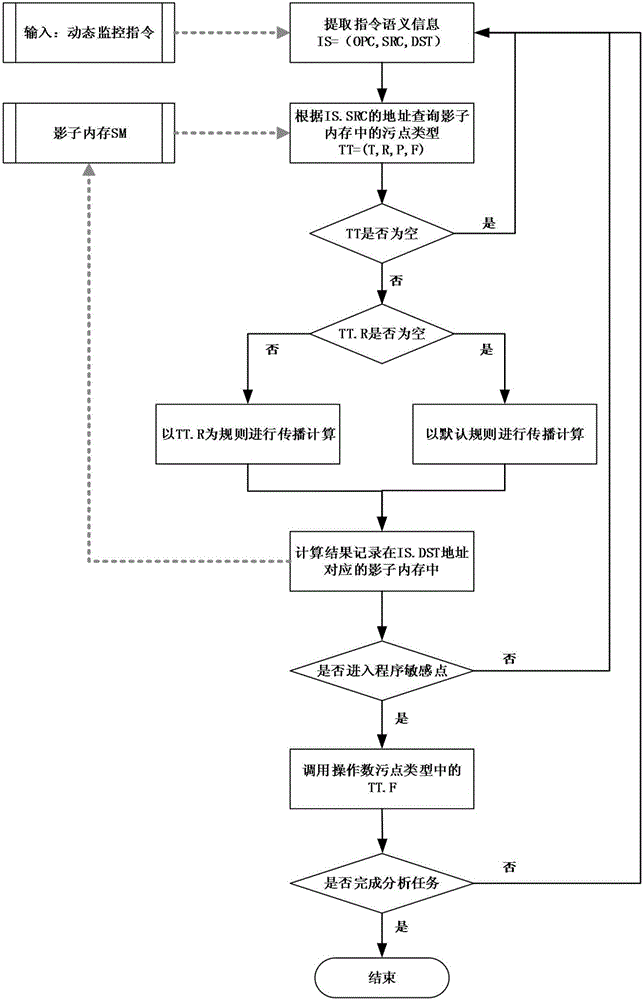Multi-semantic dynamic taint analysis method
A dynamic taint and analysis method technology, applied in the computer field, can solve problems such as single semantics, achieve the effects of improving processing capabilities, enhancing description capabilities, and improving analysis efficiency
- Summary
- Abstract
- Description
- Claims
- Application Information
AI Technical Summary
Problems solved by technology
Method used
Image
Examples
Embodiment Construction
[0025] The technical scheme of the present invention is described in detail below in conjunction with accompanying drawing:
[0026] like figure 1 As shown, a multi-semantic dynamic taint analysis method includes the following stages:
[0027] 1. Generate different taint semantic types according to the multi-semantic taint configuration
[0028] First, analyze the configuration requirements of multi-semantic dynamic taint analysis, that is, extract how many different taint semantic types are tracked at the same time, and then combine each taint semantic type to initialize related instance parameters. Specifically, the present invention uses the instance parameter TT=(T, L, C, R, P, F) to describe the taint semantic type, wherein T represents a unique type mark, for example, 0 represents a common file type taint, and 1 represents a network data type Stain; L is the taint semantic type, C represents all the methods that generate this kind of taint semantic type in the program,...
PUM
 Login to View More
Login to View More Abstract
Description
Claims
Application Information
 Login to View More
Login to View More - R&D
- Intellectual Property
- Life Sciences
- Materials
- Tech Scout
- Unparalleled Data Quality
- Higher Quality Content
- 60% Fewer Hallucinations
Browse by: Latest US Patents, China's latest patents, Technical Efficacy Thesaurus, Application Domain, Technology Topic, Popular Technical Reports.
© 2025 PatSnap. All rights reserved.Legal|Privacy policy|Modern Slavery Act Transparency Statement|Sitemap|About US| Contact US: help@patsnap.com


